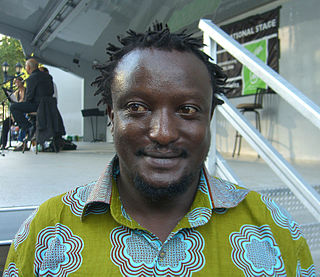Top 34 Quotes & Sayings by Binyavanga Wainaina
Explore popular quotes and sayings by a Kenyan author Binyavanga Wainaina.
Last updated on April 14, 2025.
When I went to live in South Africa, I immediately began to understand what went wrong. Because here was a place supposed to be under apartheid - I arrived there in 1991 - but here a black person had more say and had more influence over his white government than an average Kenyan had over the Moi government.
International correspondents with their long dictaphones, and dirty jeans, and five hundred words before whiskey, are slouched over the red velvet chairs, in the VIP section in the front, looking for the Story: the Most Macheteing Deathest, Most Treasury Corruptest, Most Entrail-Eating Civil Warest, Most Crocodile-Grinning Dictatorest, MOst Heart-Wrenching and Genociding Pulitzerest, Most Black Big-Eyed Oxfam Child Starvingest, Most Wild African Savages Having AIDS-Ridden Sexest with Genetically Mutilatedest Girls...The Most Authentic Real Black Africanest story they can find.
I have learned that I, we, are a dollar-a-day people (which is terrible, they say, because a cow in Japan is worth $9 a day). This means that a Japanese cow would be a middle class Kenyan... a $9-a-day cow from Japan could very well head a humanitarian NGO in Kenya. Massages are very cheap in Nairobi, so the cow would be comfortable.
It is a pink and blue feeling, as sharp as clear sky; a slight breeze, and the edges of Lake Nakuru would rise like the ruffle at the edge of a skirt; and I am pockmarked with whole-body pinpricks of potentiality. A stretch of my body would surely stretch as far as the sky. The whole universe poised, and I am the agent of any movement.



















